
Resource library
This library holds a chosen collection of useful tools, guides, and resources in the social enterprise sector. You can explore guides, articles, and more to support your journey. If you're starting a social enterprise, facing sector challenges, or looking into the impact economy, you’ll find something useful here.
Suggest a new educational resource or update here to help keep this library useful.
213 results found
.png?w=192)
'Legacy: how to build the sustainable economy', Dieter Helm
VideosDieter Helm’s video lecture series examines the steps needed for a sustainable economy, addressing polluter responsibility, resource maintenance, and investment, with detailed insights, downloadable slides, and an accompanying book.
'Legacy: how to build the sustainable economy', Dieter Helm-1.png?w=192)
Legal Structures for Social Enterprises – a nationwide conversation on law reform
ArticlesOn Monday 17 August 2020, the Australian Law Reform Commission co-hosted with the University of Melbourne a webinar with a panel of experts discussing the potential for a future ALRC inquiry into legal structures for social enterprises.
Legal Structures for Social Enterprises – a nationwide conversation on law reform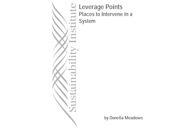
'Leverage Points: Places to Intervene in a System', Donella Meadows
White papersThis foundational paper by Donella Meadows introduces 12 leverage points within systems where small interventions can drive significant change. It highlights the potential of paradigm shifts in addressing complex challenges, while acknowledging the resistance systems often present to such transformations.
'Leverage Points: Places to Intervene in a System', Donella Meadows
‘Lights, Camera, Action: How to Craft a Compelling Pitch Video’, Indiegogo
GuidesCrafting a compelling pitch video can provide you with an excellent (and multi-use) resource. This guide shares tips for creating standout videos, different story arc models and advice for working with production agencies.
‘Lights, Camera, Action: How to Craft a Compelling Pitch Video’, Indiegogo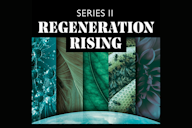
‘Making Embassy with Tyson Yunkaporta’, Regeneration Rising, Season 2 Episode 11
First NationsPodcastsFirst NationsDiscover Tyson Yunkaporta’s concept of “making embassy,” which fosters respectful, reciprocal, and meaningful relationships between people, groups, and systems. Rooted in Indigenous cultural practices, it emphasises relationality, shared purpose, cultural respect, and adaptability. Explore how this dynamic approach creates spaces for dialogue, collaboration, and the intersection of diverse knowledge systems.
‘Making Embassy with Tyson Yunkaporta’, Regeneration Rising, Season 2 Episode 11.png?w=192)
‘Managing the Managers: Nine Tips to Help Social Enterprises Build Outstanding Management Teams’, Next Billion
ArticlesThis NextBillion article provides nine essential strategies for building strong management teams in social enterprises. It highlights the importance of fostering a high-performing culture, implementing supportive systems, and prioritising continuous learning. Key approaches include effective talent assessment, incremental onboarding, meeting management, and coaching skill development. The article emphasises how strong management is vital for scaling operations and achieving meaningful impact.
‘Managing the Managers: Nine Tips to Help Social Enterprises Build Outstanding Management Teams’, Next Billion.png?w=192)
‘Managing volunteers’, Justice Connect
GuidesThis Justice Connect guide outlines the key legal obligations organisations have towards volunteers. It provides practical examples, templates, and tips to help organisations navigate crucial areas, including the legal differences between volunteers, employees, and contractors; managing volunteer relationships; ensuring volunteer safety; addressing unlawful workplace behaviour; and handling intellectual property, privacy, and record-keeping issues.
‘Managing volunteers’, Justice Connect.png?w=192)
National Disability Insurance Scheme (NDIS) Co-Design Hub
PlatformsThe NDIS Co-Design Hub supports inclusive disability service design by involving people with disabilities and their families. It provides resources, case studies, and best practices to foster collaboration between participants, service providers, and policymakers.
National Disability Insurance Scheme (NDIS) Co-Design Hub-1.png?w=192)
National Employment Services Association (NESA)
PlatformsThe National Employment Services Association (NESA) is Australia's peak body for employment services, advocating for systemic improvements, workforce development, and inclusive hiring. It supports employment practitioners and promotes job access for disadvantaged groups.
National Employment Services Association (NESA)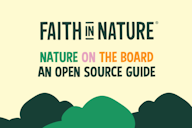
Nature on the board - an open source guide
GuidesThis guide shares, in plain English, how Faith in Nature recognised the legal Rights of Nature within its organisational structures. Based in the UK, It sets out how they went about it and the changes made to their ‘Articles of Association’.
Nature on the board - an open source guide
Nature positive business models
ArticlesThis online resource by Wedgetail brings together multiple examples of nature-positive business models being explored around the world.
Nature positive business models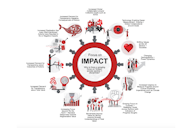
Now we are all measuring impact
ArticlesA rich introduction to the history of measurement and how different drivers have informed how we think about, and practice, impact measurement and evaluation today. Also includes some useful graphics that help distinguish different terms and approaches from each other.
Now we are all measuring impact
Organising in Place and Working Across Altitudes
WebinarsRegen Labs and Regen Melbourne led an insightful webinar exploring how social enterprises can work across system layers, or "altitudes" to organise for place-based change. Using frameworks, real-world projects, and the concept of “altitude sickness,” the session offered practical tools to strengthen collaboration, coherence, and momentum in complex systems work.
Organising in Place and Working Across Altitudes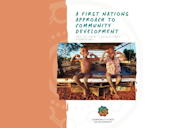
Our Community Development Framework – a First Nations Approach
First NationsGuidesFirst NationsThis resource is a practical guide from Community First Development that explains their First Nations approach to community development. It outlines a strengths-based framework shaped by culture, relationships and self-determination. The guide shows how communities can lead decisions, design local solutions and measure progress in ways that respect First Nations knowledge and value
Our Community Development Framework – a First Nations Approach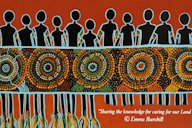
Our Knowledge, Our Way – Indigenous Knowledge Guidelines
First NationsGuidesFirst NationsOur Knowledge, Our Way is a set of Indigenous-led best practice guidelines that show how Aboriginal and Torres Strait Islander peoples strengthen and share their knowledge to care for land and sea Country. The resource highlights respectful ways of working with Indigenous knowledge and building partnerships that support cultural leadership, land management and collaborative decision-making across research and practice.
Our Knowledge, Our Way – Indigenous Knowledge Guidelines.png?w=192)
Outcomes funds: Explained
GuidesThis guide explains what an outcomes fund is and how it works. An outcomes fund brings together funding from different sources and pays organisations based on the results they achieve. The guide outlines who is involved and how these funds are set up and managed.
Outcomes funds: Explained
Parliamentary Inquiry: Economic Self-Determination for First Nations Australians
First NationsReportsFirst NationsThis government inquiry explores how to improve economic self-determination and opportunities for Aboriginal and Torres Strait Islander peoples. Led by the Joint Standing Committee on Aboriginal and Torres Strait Islander Affairs, the inquiry examines barriers and enablers for training, jobs, business growth, access to capital and economic leadership. It gathers evidence from experts, organisations and communities and makes recommendations to strengthen pathways for First Nations economic participation and decision-making.
Parliamentary Inquiry: Economic Self-Determination for First Nations Australians
'Part Discount Grocer, Part Social Connection: Defining Elements of Social Supermarkets', Centre for Social Impact
ReportsThis research paper by the Centre for Social Impact Flinders explores social supermarkets as an innovative model for addressing food insecurity. Combining affordable food access with social support, these supermarkets move beyond traditional food relief by integrating dignity, choice, and community connection. The paper highlights how social supermarkets offer a comprehensive approach, including financial, emotional, and skill-building services, fostering long-term independence and resilience for clients.
'Part Discount Grocer, Part Social Connection: Defining Elements of Social Supermarkets', Centre for Social Impact-2.png?w=192)
'Participatory Budgeting: Meaning, Benefits & A Step-by-Step Guide', Delib
ArticlesThis article introduces participatory budgeting, a democratic process empowering citizens to influence public fund allocation. It covers its origins in Porto Alegre, Brazil, outlines key stages, and highlights benefits like transparency, trust, and community empowerment, making it an ideal resource for those exploring the concept.
'Participatory Budgeting: Meaning, Benefits & A Step-by-Step Guide', Delib.png?w=192)
'Payment by Outcomes: Measuring the Effectiveness of Jobs-Focused Social Enterprises', Centre for Social Impact
ReportsThis report by CSI Swinburne evaluates the Australian Government’s Payment by Outcomes (PBO) trial, which funds jobs-focused social enterprises based on employment outcomes. It assesses the impact on individuals facing work barriers, including those with disabilities, and explores the trial’s systemic and policy implications for employment services.
'Payment by Outcomes: Measuring the Effectiveness of Jobs-Focused Social Enterprises', Centre for Social Impact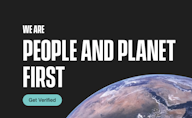
People and Planet First (PPF)
PlatformsPeople and Planet First is a participatory verification and a global collective that’s helping accelerate the transition to an economy that puts people and the planet first.
People and Planet First (PPF)
Permaculture Australia: Sustainable Living Through Design
PlatformsPermaculture Australia promotes sustainable living and growing practices through the principles of permaculture, tailored to Australia’s unique climate and ecosystems. The organisation provides education, training, and certification in permaculture design, supports local projects focused on food security and regenerative agriculture, and advocates for ecological and social resilience. By fostering self-sufficient, sustainable communities, Permaculture Australia helps communities work in harmony with the environment.
Permaculture Australia: Sustainable Living Through Design-19.png?w=192)
‘Pitching and fundraising’, Acumen Academy
ArticlesThe Acumen Academy offers free online courses and resources for social entrepreneurs. Their blog series on fundraising and pitching social enterprises provides valuable insights for changemakers seeking to refine their pitching skills and increase their chances of securing support and funding.
‘Pitching and fundraising’, Acumen Academy.png?w=192)
Platform Cooperatives Toolkit
PlatformsThe Platform Cooperatives Toolkit provides practical resources for building fair, worker-owned cooperatives in the digital economy. It includes step-by-step guides, case studies, and tools to promote equitable ownership and sustainable employment.
Platform Cooperatives Toolkit.png?w=192)
'Power Dynamics: A Systemic Inquiry', Anna Birney (School of System Change)
ArticlesThis blog delves into power through a systems change lens, emphasising its importance in tackling sustainability challenges. It redefines power as a relational dynamic rather than a static state, exploring shifts from “power over” to “power with” approaches. Key themes include privilege, systemic challenges like climate change and inequality, and the fractal nature of power across scales. Combining theoretical insights with practical strategies, it provides tools for minimising hierarchical power, fostering collaboration, and building capacity for transformative, inclusive decision-making.
'Power Dynamics: A Systemic Inquiry', Anna Birney (School of System Change).png?w=192)
Prepare for Funding: The 4 Ps
ReportsThis guide by Sefa (Social Enterprise Finance Australia) helps social enterprises get ready for funding. It explains four key areas to focus on: Purpose, Plan, Profit, and Prudence. It provides practical advice to strengthen strategy, financial planning and governance so organisations can confidently approach funders and investors.
Prepare for Funding: The 4 Ps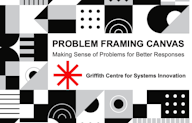
Problem Framing Canvas Workbook
GuidesThis handbook helps you clearly understand the problem your social enterprise or project is trying to solve. When you understand the real problem, it is easier to find better solutions. The canvas and guide include simple tools to help you define the problem, see different types of problems, and identify practical actions you can take.
Problem Framing Canvas Workbook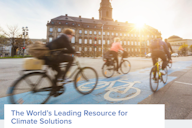
Project Drawdown: The World’s Leading Resource for Climate Solutions
ReportsProject Drawdown is a nonprofit organisation dedicated to identifying and scaling science-based solutions to combat climate change. Focused on equitable, safe, and effective approaches, the organisation conducts research, engages stakeholders, and promotes solutions to drive meaningful action. Through storytelling and collaboration, Project Drawdown shifts the narrative on climate change from despair to possibility, offering practical pathways for individuals and organisations to contribute to impactful climate action.
Project Drawdown: The World’s Leading Resource for Climate Solutions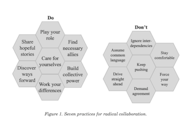
'Radical Collaboration to Transform Social Systems', Adam Kahane
ArticlesThis article by Adam Kahane introduces ‘radical collaboration’ as a transformative approach to tackling systemic challenges. By integrating love, power, and justice, it fosters empathy, empowerment, and fairness among diverse stakeholders. This method aims to align differing interests and capacities, enabling inclusive and impactful systems change while navigating inherent tensions in collaboration.
'Radical Collaboration to Transform Social Systems', Adam Kahane.png?w=192)
Raise finance
PlatformsThis guide explains how social enterprises can raise money beyond grants and donations by involving their community and members. It focuses on using a co-operative structure to attract investment, share ownership and build long-term financial support while staying true to social purpose.
Raise finance
Regen 101
GuidesLearn more about what regenerative agriculture is and how we can grow food in a way that gives back to people and the planet.
Regen 101.png?w=192)
‘Relationships’, The Australian Indigenous Governance Institute (AIGI)
First NationsGuidesFirst NationsThis resource from the Australian Indigenous Governance Institute (AIGI) examines the significance of relationships in First Nations governance. It covers cultural, community, and environmental connections, balancing roles, building trust, and fostering effective partnerships. The guide also explores allyship, network expansion, and practical strategies for creating balanced, respectful collaborations within Indigenous communities and beyond.
‘Relationships’, The Australian Indigenous Governance Institute (AIGI)
Remarkable Insights Podcast
PodcastsThe Remarkable Insights Podcast by Remarkable explores how disability drives innovation, featuring global pioneers in assistive tech and inclusive design. Hosted by Viv Mullan, each episode reveals how lived experience and creativity shape business, technology and social change
Remarkable Insights Podcast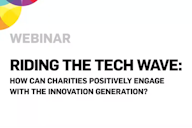
Riding the Tech Wave: How Charities Can Positively Engage with the Innovation Generation
WebinarsThis article highlights how charities can connect with a new generation of tech founders who are becoming major donors in Australia. Drawing on the Australian Tech Giving Report, it explains how tech wealth is growing, why tech givers give differently, and how not-for-profits can adapt to engage them.
Riding the Tech Wave: How Charities Can Positively Engage with the Innovation Generation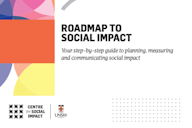
Roadmap to Social Impact - CSI
GuidesThis thorough resource from Centre for Social Impact is a step by step guide to support you and your organisation through the process of outcomes measurement and evaluation.
Roadmap to Social Impact - CSI
Rural and Remote Funding to Deliver Social Impact
WebinarsThis resource is currently being developed. If you would like to be notified when it is published, please email team@understorey.org.au.
Rural and Remote Funding to Deliver Social Impact.png?w=192)
SafeWork Australia
SafeWork Australia offers resources for workplace health and safety, including psychosocial safety. Black Dog Institute supports mental health with free NSW training. Local SafeWork bodies, like SafeWork NSW, also provide helpful resources.
SafeWork Australia
Seedkit
PlatformsSeedkit is a national project and online platform that helps social enterprises measure and share their impact. It allows organisations to track their work and results using simple dashboards and reports that can be customised to their needs.
Seedkit
Seed to Table
PodcastsThe Seed to Table podcast explores the stories of Australians working to revitalise our food and farming systems.
Seed to Table-2.png?w=192)
‘Self-determination section for the ‘Indigenous Governance Toolkit’, The Australian Indigenous Governance Institute (AIGI)
First NationsGuidesFirst NationsSelf-determination is vital to the governance and aspirations of Aboriginal and Torres Strait Islander peoples, enabling them to lead decision-making, exercise sovereignty, and build community-driven governance systems. This toolkit section outlines principles, pathways, and practical steps toward self-determination, including nation building, treaty processes, and sustainable development.
‘Self-determination section for the ‘Indigenous Governance Toolkit’, The Australian Indigenous Governance Institute (AIGI)-24.png?w=192)
Service Design Tools: A Resource for Co-Creation and Innovation
PlatformsService Design Tools is an open-access platform offering methods and templates for designing user-centered services. With tools spanning research, ideation, and implementation, it supports collaboration and co-creation across diverse contexts like healthcare, education, and social innovation. Suitable for both beginners and experienced designers, the platform provides resources to facilitate inclusive and impactful service development.
Service Design Tools: A Resource for Co-Creation and Innovation-1.png?w=192)
'Seven Transformations of Leadership', Harvard Business Review
ArticlesThis framework categorises leadership into seven stages, from Opportunist to Alchemist, reflecting increasing complexity and transformative impact. Each stage highlights unique approaches to challenges, relationships, and organisational goals. Leaders can progress through feedback, self-reflection, and embracing new responsibilities, with growth beyond the Achiever stage requiring deep self-awareness and the ability to challenge assumptions. Teams led by Strategists are most adaptable, benefiting from diverse perspectives and innovation to navigate complex challenges and drive organisational transformation effectively.
'Seven Transformations of Leadership', Harvard Business Review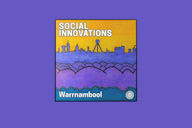
Silver Ball Social Innovations: Warrnambool
PodcastsSilver Ball Social Innovations: Warrnambool is a new podcast commissioned by the Fletcher Jones Family Foundations. It spotlights six local social enterprises creating lasting community impact. Through uplifting and inspiring stories, the series showcases grassroots innovation, creativity and connection across Warrnambool’s social enterprise ecosystem.
Silver Ball Social Innovations: Warrnambool.png?w=192)
Social enterprise guide
GuidesThis guide from Justice Connect helps social enterprises understand their legal responsibilities. It covers choosing a legal structure, setting up governance, meeting compliance requirements, and managing day-to-day operations. The guide supports organisations at different stages of development to make informed legal decisions.
Social enterprise guide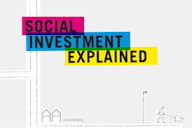
Social Investment Explained
GuidesSocial Investment Explained is a practical guide that helps community groups and social enterprises understand different types of investment. Produced by the Big Lottery Fund, Social Enterprise UK (SEUK) and Social Spider, it explains funding options, investment readiness, and key questions to consider when preparing to seek investment.
Social Investment Explained.png?w=192)
Social Investment Manual: An Introduction for Social Entrepreneurs
E-booksThis manual provides practical advice for social entrepreneurs on working with social investors. It explains the investment landscape, how to find and approach investors and what to expect during due diligence. The guide also shares tips for building strong, long-term partnerships.
Social Investment Manual: An Introduction for Social Entrepreneurs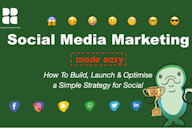
Social media marketing made easy - video lesson and planner
VideosThis 40 minute video uses real life examples to share how to build, launch and optimise a simple social media strategy. It is a pragmatic guide for small organisations with limited resources and time-poor people wearing multiple hats.
Social media marketing made easy - video lesson and planner.png?w=192)
Social media templates, Hootsuite
ArticlesIt’s difficult to keep up with the latest trends in social media. Hootsuite regularly updates its advice and offers many free tools for planning and posting on social media. This page pulls together 35 different templates and while they won’t all be relevant to you there are some useful ones in there.
Social media templates, Hootsuite.png?w=192)
Social procurement document library
ReportsThis portal provides access to documents about Victoria’s Social Procurement Framework. It includes the framework, case studies, and guidance for buyers. The resources explain how the Victorian Government uses procurement to achieve social and sustainable outcomes, and help social enterprises understand how to work with government buyers.
Social procurement document library.png?w=192)
Social Procurement Fundamentals for Social Enterprises
VideosThis video tutorial explains social procurement and why it matters. It outlines the key drivers behind social procurement, how the Social Traders marketplace operates, and what social enterprises need to prepare in order to access contracts and opportunities through this growing market.
Social Procurement Fundamentals for Social Enterprises
Do you know of a resource that could benefit the social enterprise sector?
Submit resource

We’d love to hear from you!
Reach out to one of our team members, and share input and ideas about how we can evolve Understorey.
Get in touch